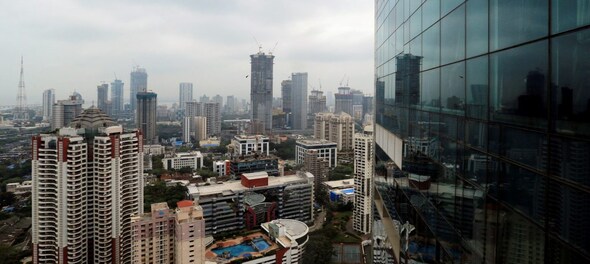
The effects of the second wave of COVID-19 that has ravaged the country will not only be seen in the number of casualties but also in the country's economy. Unlike last year, economists are predicting that while there will be an unavoidable impact on the economy it won't be a protracted one.
"The level of stringency of lockdowns, even in states where they have been announced, is lesser than what we saw in the nationwide lockdown last year," said Sonal Varma, chief India economist, Nomura, in an interview to BloombergQuint.
She added, "Our baseline assumption is that the virus peaks out by May. So we are seeing this as a two-month big hit but an improvement thereon. If that plays out, then on a sequential quarter-on-quarter basis, we are currently looking at contraction (not annualised) of 1.5 percent."
Also read:
Economists have cautioned on relying on traditional high-level indicators on an annualised basis due to the incredibly favourable base effects from last year's massive contraction. Economists are saying that numbers should be compared to pre-pandemic economical levels instead.
"We need to start measuring the recovery against where we were pre-pandemic. I would argue that even before the second wave, taking into account double-digit growth for this year, we would still be 6-7 percent short by the end of the year," Chinoy said.
Others like Jean Dreze, Belgian-born Indian economist, noted that while the economic impact on a macro scale might not be as bad, the situation can be quite different for individuals.
"The economic consequences of local lockdowns may not be as destructive as those of a national lockdown. But in some respects, things are worse this time for the working class," Dreze said.
"Compared with last year, many people have depleted savings and larger debts. Those who borrowed their way through last year's crisis may not be able to do it again this time," he added.
Dreze suggested the government should shore up its social welfare systems and schemes as intermittent crises will continue to happen and jeopardise the livelihoods of many. He also highlighted the importance of spending more on healthcare, with GDP expenditure on healthcare hovering at just 1 percent for decades in India, which itself is concentrated in urban areas.
The union finance ministry is reportedly preparing a stimulus package for hard-hit sectors though very little fiscal relief has been provided to the common man.
According to Nobel laureate Abhijit Banerjee, the government should be spending more to alleviate the economic impact of the second wave and improving the healthcare infrastructure in the country. The global average percentage of GDP spent on healthcare was around 10 percent, nearly 10 times that of India.
"Is it possible to spend an extra 2 percent of GDP on this right now? Probably - many countries have borrowed ten times that amount, so why not?," he said regarding government spending on fiscal relief.



